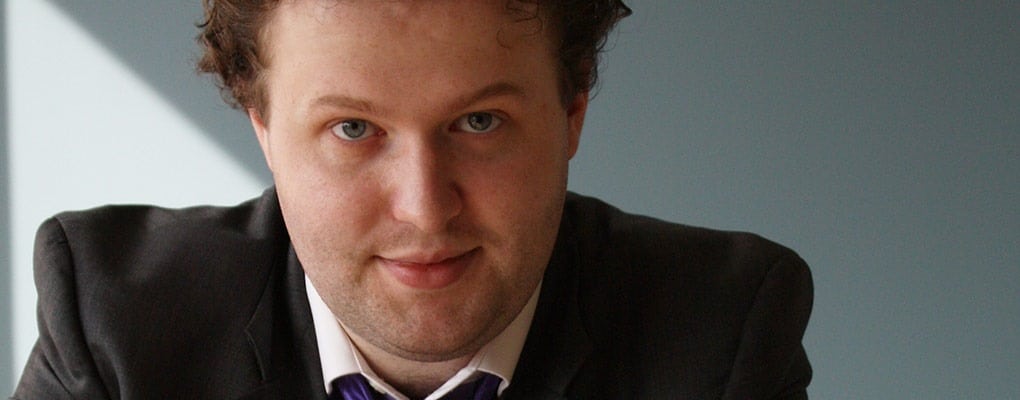Books
The Steel Dagger Shortlist – Roger Hobbs
Every year the CWA announce the shortlisted authors for their Dagger Awards. This year is no different and last month the CWA Ian Fleming Steel Dagger Awards were announced. Four books that signify the best in thriller fiction sponsored by Ian Fleming Publications Ltd. Over the next four weeks we’ll be looking forensically at what makes these books great.
Starting off with the authors! We’ve interviewed all four authors to find out what inspired them, how they think the thriller genre has changed and how easy it is for them to kill off their characters! Our third author in the spotlight is Roger Hobbs author of Ghostman.
Who or what inspired you to write? Did you always want to be a writer?
I always wanted to be a writer. I wrote my first novel when I was twelve years old, and I haven’t stopped since. I wrote almost every day all through middle school, high school and college. During that time I finished a half a dozen novels, a couple of screenplays and a few plays. They say every writer goes through seven years of rejection. I certainly did, I just got started on it early. There wasn’t any single moment of inspiration for me– I simply started typing one day and couldn’t bring myself to stop.
How attached do you get to the characters in your novels? Do you find it hard to kill characters off?
I don’t get attached to my own characters, and I don’t know why. When I read other writer’s books I get attached very easily, but for whatever reason I don’t get attached to my own. I sympathize with my characters, sure. I even identify with them. But I don’t mourn them when they die, and I don’t pretend they’re real. I don’t hear voices in my head the way other writers do. At every step of the process I’m acutely aware of what I’m doing. It’s because I know how the magic is made, I think. I knew my character back when he was just a sketch on a notepad. I was there for the rough drafts. I can never shed the sense of my own artifice. Plus, I’m the ultimate arbiter of each character’s fate– it wouldn’t be right for me to play favorites at the expense of a good story.
What kind of characters do you most enjoy writing?
Clever characters. Most of the time I don’t have the patience to write an idiot, but it isn’t just that. A clever character, good or bad, is always looking for an angle. They’re aware of the meaning, purpose and effect of their own actions and the possible repercussions of those actions in a larger context. They don’t just do things because they’re right (or wrong), but because their actions are likely to have a result they find valuable. A clever character never does anything for the hell of it. They always have a plan.
Ian Fleming said that to make a good thriller ‘one just has to turn the page’ – do you agree?
I absolutely agree.
How has the thriller genre changed in the post 9/11 world?
I don’t know. I read my first thriller when I was fourteen – in 2003.
What is the strangest thing a fan has ever said to you / your strangest signing experience?
My strangest signing experience came when I was signing books for students at my alma mater. One student, having heard of my taste for cryptography, wanted me to construct a code based on my novel that she would have to decipher to read. I had to take the book home with me overnight to finish signing it. In the end the message was not particularly complicated. It read something along the lines of “damn, I hope this code is complicated enough for you,” but the cypher I created was pretty cool. It required her to parse a basic substitution code while going through an embedded book code. I had a lot of fun with it!
What is your favourite pastime when you are not writing?
When I’m not writing, I’m traveling. Ever since I started writing full time I’ve been able to get a first-hand look at how other cultures do crime. For example, my next book is set in Macau. In the last few weeks I’ve traveled through the south of China so I could get familiar with how criminals work over there. I gambled with mobsters, went drinking with drug dealers, and cased jewelry stores like a burglar. I wandered through the slums and stayed at some very nice hotels. That’s the sort of adventure I crave: exciting, new, and just a little dangerous.
When I’m at home, though, I love to play poker. I’ve got a group that plays every Friday. You see, the game of poker is a lot like writing. Players don’t win or lose based on the quality of their cards, but on their ability to convince other players that their hand is good or bad. Bluffing is the central skill in writing fiction. Both poker players and writers tell lies for money, essentially, and have a lot of fun doing it!
Find out more about the other Dagger shortlisted authors – read our interview with Robert Wilson and with Mark Oldfield.
Follow Roger Hobbs on Twitter.
Read the Book:


Please note: Moderation is enabled and may delay your comment being posted. There is no need to resubmit your comment. By posting a comment you are agreeing to the website Terms of Use.